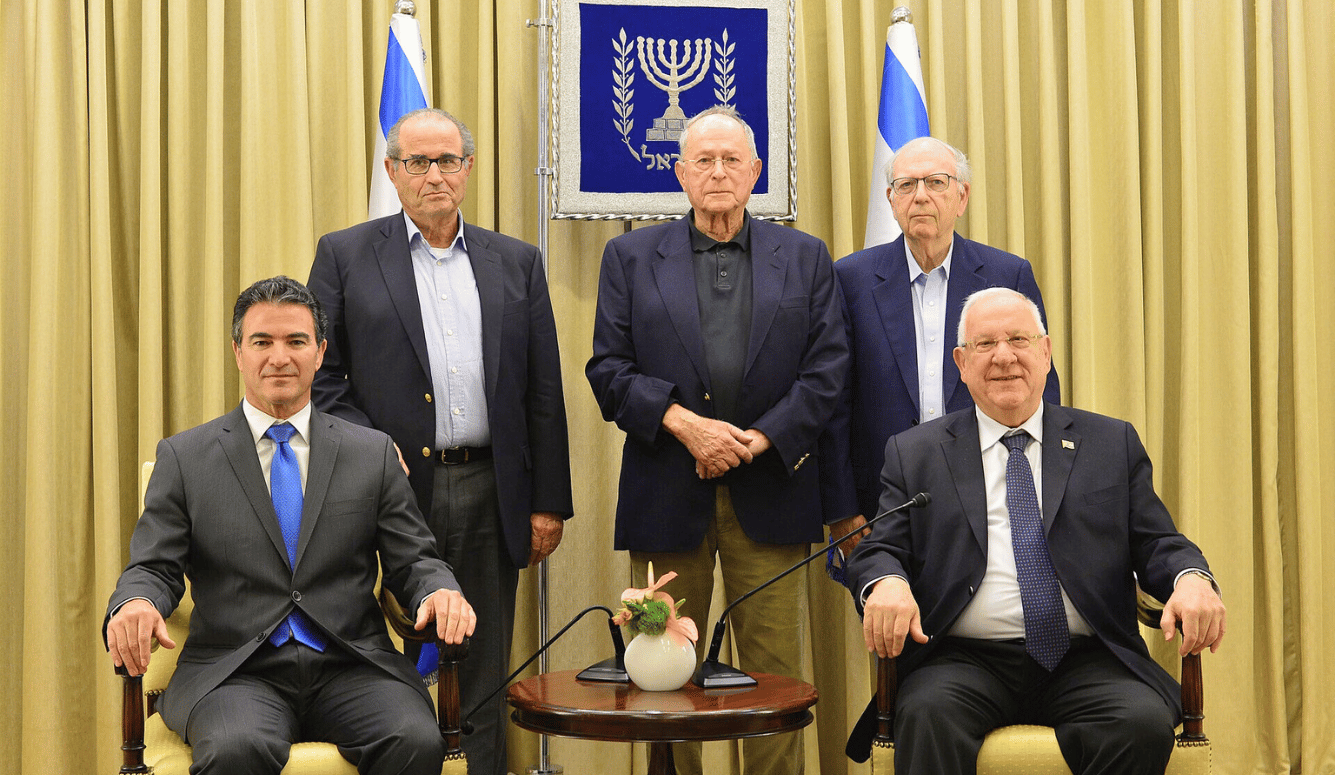Politics
The Honour and the Duty
Yossi Cohen has written a bracing and lively memoir about his time as head of Mossad.

A review of The Sword of Freedom: Israel, Mossad, and the Secret War by Yossi Cohen; 261 pages; Broadside Books (September 2025)
In September, Israeli media reported that the Mossad had dispatched over 100 clandestine agents to Iran at the outbreak of June’s Twelve Day War—the largest single-mission deployment in the agency’s storied history. The agents fanned out across the Islamic Republic to target the mullahs’ ballistic missiles and anti-aircraft defences, paving the way for the Israeli Air Force to destroy Iran’s nuclear facilities. According to one report, Israeli operatives even managed to establish a drone-manufacturing site near Tehran, right under the ayatollahs’ noses.
The Mossad’s tactics led the Iranian air-force brass to assemble in command centres, which Israeli intelligence had mapped out in great detail, to devastating effect. Thirty Iranian generals and nine nuclear scientists were assassinated within minutes. “It was a red wedding,” defence officials told Israeli TV, referencing the military operation named after a notorious Game of Thrones massacre. “We understood within 48 hours that the skies of Tehran were ours.”
These extraordinary achievements were the results of decades of meticulous planning by Israeli intelligence and represented “the fulfilment of my life’s work,” in the words of Yossi Cohen, who led the Mossad from 2016–21. In The Sword of Freedom, his bracing and lively memoir, Cohen documents the decades he spent serving his country with dedication and cunning—and a special focus on neutralising the existential threat Iran has posed. “Modern wars no longer end in absolute victory or abject surrender,” Cohen writes, “yet the state of Israel must win any conflict it enters.” That sad-but-true nostrum animates the Jewish State’s security apparatus, which confronts strategic and diplomatic challenges faced by no other country in the world.
Cohen’s narrative proceeds chronologically for the most part, albeit in discursive and idiosyncratic style, beginning with his recruitment into the world of secrets as a twenty-something. He’s at his best describing specific missions with as much detail as Israeli censors will permit, such as his successful effort to flip a high-ranking Hezbollah fighter he names “Abdullah.” The information he eventually elicited was pivotal in recovering the bodies of two Israeli soldiers who had perished in battle in Lebanon ten years earlier, in 1986. Cohen walks us through the three stages of his engagement, beginning with relationship-building; followed by “deterioration,” or the selective, tactical revelation of certain secrets; and concluding with a “final nudge” toward outright betrayal.
He also relates the riveting 2018 story of how Mossad spies infiltrated warehouses in Tehran where the mullahs had secreted their entire nuclear archive. This revelation of the mullahs’ perfidy helped convince President Donald Trump to scrub the Joint Comprehensive Plan of Action (JCPOA), the deeply flawed nuclear agreement his foolhardy predecessor had signed with Iran. The American withdrawal from the JCPOA in turn triggered a rapid acceleration of the Iranian nuclear program, both in terms of uranium enrichment and weaponisation—processes that finally came to a head in June.
Even more dramatic is Cohen’s reconstruction of the extraordinary remote assassination in 2020 of Mohsen Fakhrizadeh, the chief Iranian nuclear scientist, who was gunned down by an unmanned, truck-mounted machine gun operated—with the assistance of Israeli-developed artificial intelligence—thousands of miles away at precisely the correct moment. Cohen also reveals that, many years earlier, he personally recruited an Iranian scientist who would provide critical information about Fakhrizadeh.





